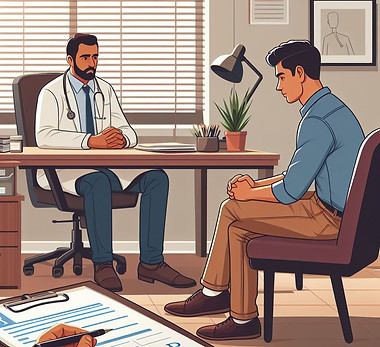

Treatment Services
Below is a brief description of various steps in treatment.
Patients require an individualized mix of medicines and talk-therapy to address both the hardware (brain) and software (mind), depending on their illness and severity.
Initial Consultation

We will go over your current symptoms, past episodes, family history, past treatments, quantify your current symptom severity using rating scales, discuss treatment options and future course.
Follow up Consultation

Follow up consultations will involve going over your experience with the treatment, quantifying symptoms with rating scales, adjusting medicine doses.
Medicines/Pharmacotherapy

Medicines for depression and anxiety disorders are usually limited to a few months. OCD may require taking medication for a couple of years. Medication used for these conditions act by modulating neurotransmitter levels in the brain and have been found to help nerve cell growth. They do not need to be taken life long and are not addictive.
Talk therapy/Psychotherapy

I offer Cognitive-Behavior therapy and Exposure Response Prevention (ERP) for OCD and Depression. We will work together to uncover and modify unhelpful thinking patterns and plan behavioural experiments to help with your mood, reduce obsessions and compulsions.
Transcranial Magnetic Stimulation

TMS works on Faraday's law of electromagnetic induction. Magnetic pulses are delivered to brain targets - Dorsolateral prefrontal cortex in depression and Anterior cingulate cortex for OCD. Reduction of symptoms is seen on average in 10 days. Used to accelerate treatment response and also in patients not responding to medication.
Meeting with Caregivers

Psychiatric illness often develop over weeks and months and subside slowly too. At times they can be chronic. Education of caregivers/family members is important towards correcting misconceptions about psychiatric conditions, to reduce stigma, addressing caregiver burden and ultimately improving outcomes.